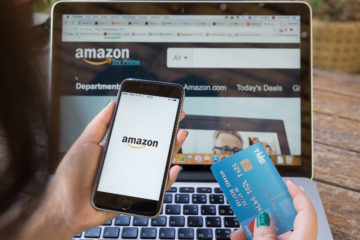The Market Institute Senior Fellow Norm Singleton has a new article in Real Clear Markets looking at FTC Chairwoman Lina Khan’s position on ‘Big Tech’ and the consumer welfare standard.
He writes:
“Richard Alexander was correct when he wrote that Lina Khan’s life story is impressive. How many lawyers in their early 30s can say they are not just head of a major government agency, but helped launch a movement for a major change in U.S. policy by penning a 94-page law review article while still a law student?
However, Alexander is mistaken to be impressed with Khan’s big idea: the power of “big tech” companies, especially Amazon, Google, and Meta (parent company of Facebook) to justify federal regulators returning to the “big is bad” approach to antitrust enforcement. This approach is associated with former Supreme Court Justice Louis Brandeis, which is why Khan, and her allies are called neo-Branedisian – or hipster Branedisians as they have been dubbed by former Clinton Treasury Secretary Larry Summers.
Sadly, Alexander is not alone among conservatives who share Khan’s belief that the only way to protect the U.S. economy, and democracy itself, from “Big Tech” is by abandoning one of the conservative intellectual movement’s greatest triumphs: replacing the big is bad standard with a consumer welfare standard.
Conservative Brandeisians justify their fear of Big Tech by pointing to a study claiming that Google swayed millions of votes toward Hillary Clinton by manipulating their algorithms for her. However, what they fail to point out is the study found just 21 out of 95 participants supposedly had their view of the candidate changed because of the manipulated search results, The study has been criticized for “weird methodology” and was not peer-reviewed.
Claims that Big Tech uses its power for nefarious political ends may seem more credible in light of the recent admission by CEO Mark Zuckerberg that, following warnings from government officials about “Russian disinformation,” Facebook made sure any posts concerning Hunter Biden’s “laptop from hell” were downgraded on Facebook’s newsfeeds. This is disturbing, but one would expect conservatives to understand the real villain here is the government agency that “encouraged” tech companies to squash the story.
Like most large companies in today’s mixed economy, Big Tech firms are eager to please their allies/overseers in the federal bureaucracy. Of course, the fact that most Big Tech employees and executives likely favored Biden over Trump made them more eager than usual to suppress stories about the infamous laptop. However, absent government encouragement, the companies might have been less eager to alienate their Trump supporting customers by squashing tales of the laptop from hell.
Brandeisians though, say Big Tech’s power is so entrenched they need not worry about angering their consumers, This is why one of the neo-Brandeisian goals is for the FTC reverse its Obama-era approval of Meta/Facebook’s purchase of Instagram and What’s App. They believe Meta/Facebook’s acquisition of these properties make it impervious to any challenges to its market dominance by other tech companies.
This would be news to the Meta shareholders who have suffered a 55% loss of value this year. It would also be news to the 1 million users Facebook has lost since 2021 (and counting). Many of those who abandoned Meta’s properties for sites like Tik Tok are young people who will never go back.
Facebook is also threatened by the emergence of sites like Rumble and MEWE, which cater to those looking for an alternative media platform that does not silence its users for posting stories and opinions upsetting to the woke mob and/or federal agents
Summerly, while Amazon is a leader in online commerce, there are plenty of alternatives for those who, for whatever reason, want an alternative. Like Meta, Amazon is currently losing revenue, forcing it to lay off employees, all without any “help” from Lina Khan.
Brandeisians also claim Google has monopoly power that can only be broken by government action. I find this claim particularly odd since I only use Google on one of the three devices I use to access the internet, The cases of Google, Meta, and Amazon show that dominance does not mean all-powerful, uncleanable, monopoly.”


